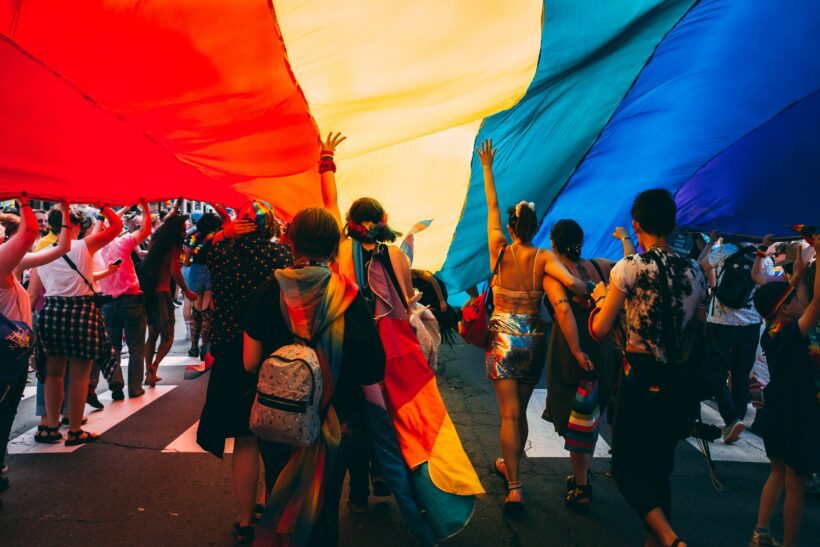Disclaimer: This post reflects solely the opinion of the authors and should not be taken to represent the general views of IPPR’s management/ editorial team or those of fellow authors
In recent years, efforts to decolonise various disciplines across the international community have been undertaken. This has necessitated introspection into the colonial legacies of states. The advancement of gay rights is one such discipline. The politics of LGBTQ+ (an abbreviation that stands for Lesbian, Gay, Bisexual, Trans and Queer) rights across societies have proved to be a severely debated and highly disputed issue. The discrimination faced by members of the community is regarded as a serious threat to the democratic ideals of equality, human dignity and civil rights.
The criminalisation of Homosexuality in South Asia
It is unfortunate to note that decades-old colonial systems continue to influence constitutions and local laws. While these systems are now redundant they have successfully restricted the advancement of LGBTQ+ rights in several former colonies of western states. In stark contrast, former western colonial powers have overwhelmingly focused on civil, legal and financial rights for same-sex couples, unions and people of different gender identities in the modern day .
In Britain, the Sexual Offences Act of 1967 decriminalised homosexuality over five decades ago. However, as of 2021, the criminalisation of homosexuality was prevalent in 69 countries, of which two-thirds were former British spheres of influence. In South Asia, within the Indian subcontinent penal codes criminalising homosexuality were inherited from British rule, with Pakistan, Sri Lanka, and Bangladesh still following colonial ideologies and practices which dominate their legal systems.
India’s top court ruled against the criminalisation of homosexuality in 2018, following a petition filed by LGBTQ+ activists. Before the imposition of colonial-era laws like Section 377, attitudes towards homosexual conduct were largely different. According to historians, Indian society was receptive to the idea of fluidity within sexuality. The carvings within the temples of Khajuraho, the Sun temple of Konark and the monastic Ajanta and Ellora caves in Maharasthra all depict erotic sculptures and art which vividly portray same-sex couples and homo-erotic acts.
Image Source: Getty Images
LGBTQ+ Rights within the Indian Subcontinent
Pakistan, Bangladesh, Sri Lanka and the Maldives are among are among the states where homosexuality is punishable by law.
The 1860 penal code which imposed English criminal law in India subsequently went on to criminalise homosexuality in the modern-day states of Pakistan and Bangladesh as well, after the partition of India into India and Pakistan and the subsequent partition of East Pakistan. This colonial-era law has had a devastating impact on the LGBTQ+ communities in these countries. Besides invading privacy, it directly contravenes the democratic right of every citizen to be treated equally.
Islamabad and Bangladesh, criminalise sexual activity between men which is regarded as against the natural order. This is due to male homosexuality being viewed as a threat to patriarchal order and traditional family structures. Individuals charged with this offence can be subject to a maximum penalty of death by stoning and life imprisonment in the two states respectively.
In Sri Lanka, the 1883 penal code was inherited from British colonial rule and criminalises sexual activity between same-sex couples, both men and women, with imprisonment of up to ten years and a fine. Additionally, under the impersonation law, transgender people may also face prosecution leading to imprisonment for up to three years and a fine.
Britain’s anti-gay laws imposed across commonwealth countries have managed to sustain negative attitudes towards the LGBTQ+ community. While not only unfair and an infringement upon personal liberty, it disregards fundamental feelings of love, disrespects individual identity and alienates people from the mainstream populace.
Image Source: REUTERS/Francis Mascarenhas
The ‘Western’ Concept
British administration introduced penal codes with strict sodomy laws within its colonies leaving behind an institutional legacy of criminalising homosexual conduct. For the colonial state, sodomy laws were a way of inculcating European standards of natural and unnatural sex within colonised communities. British legislators often failed to consult with local communities and reinforced, time and again, the idea that homosexual conduct was ‘perverse’ and against the natural order.
In 2018, at a gathering of Commonwealth leaders, the UK leadership expressed regret over the anti-gay laws imposed by the British empire. Then-Prime Minister Theresa May was quoted saying, “I am all too aware that these laws were often put in place by my own country. They were wrong then and they are wrong now.”
But the damage has already been done. Over time, these laws have seeped into local traditions and beliefs. Even in countries where being gay is no longer a criminal offence, social ramifications run deep regardless of legal status. A leading argument of the anti-LGBT bloc follows that homosexuality is a western concept that interferes with the cultural beliefs of the home country. The fact that same-sex sex or marriage is un-Indian or un-Pakistani or un-African and so on What once was a foreign law introduced by imperialists is now defended on the grounds of it being the traditional way of life.
For decolonisation to work, it is essential to undo the colonial influence over vast areas of Asia, Africa, and almost all regions over which western settlers introduced similar anti-LGBTQ+ rules, and ultimately local sentiment. It is important to recognise the colonial past of these laws and focus on the creation of more inclusive communities.
By Antara Basu,
Antara is a first-year BSc Politics and International Relations student at UCL. She enjoys exploring Identity Politics and International Conflict and Security.







